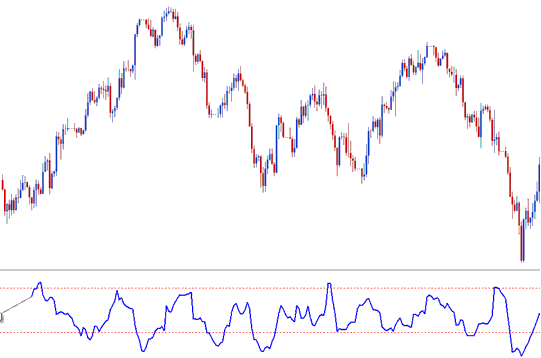Choppiness Index Stock Indices Technical Analysis & Choppiness Index Stock Indices Signals
Developed by E.W. Dreiss
Choppiness Index was designed to be an easy but practical indicator to help Stock Indices traders to determine if the stock index prices are trending or consolidating.
This Indicator is similar to ADX which is also designed to evaluate the strength or momentum of a stock indices trend and determine if the stock indices market is trending or consolidating.

The Choppiness Index uses a scale of between 0 & 100. It also typically uses upper and lower bands at 61.8 & 38.2 respectively.
This indices technical indicator is drawn by first calculating the true range for each period & then adding the values of n-periods.
Second, it calculates the highest value and lowest value over n-periods and calculates their difference.
Third, it divides the sum of the true ranges and calculates the base-10 logarithm of this value.
Finally, it divides this value by the base-10 logarithm of n-periods and multiplies the results by 100.
Stock Indices Technical Analysis & How to Generate Signals
Choppiness Index is a directionless indicator meaning it doesn't determine in which direction the stock index trading market is moving.
Its basic principle is that the more heavily the stock indices market is trending over the last number of n-periods the closer to zero the Choppiness Index will be and the more heavily the stock indices market is consolidating that is moving sideways in a ranging or chopping manner, over the last n-periods the closer to 100 the Choppiness Index will be.
Indicator values of above 61.8 indicate that the stock indices market is ranging/ choppy (moving sideways and consolidating).
Higher values occur during/after a strong consolidation phase. Higher values could also be interpreted as a signal of a potential upcoming break out after a significant consolidation has occurred.
Choppiness Index values of below 38.2 indicate that the stock indices market is trending.
Lower values occur during/after a strong trending phase. Lower values could also be interpreted as a signal of a potential upcoming consolidation and choppiness after a strong stock indices trend phase has occurred.
